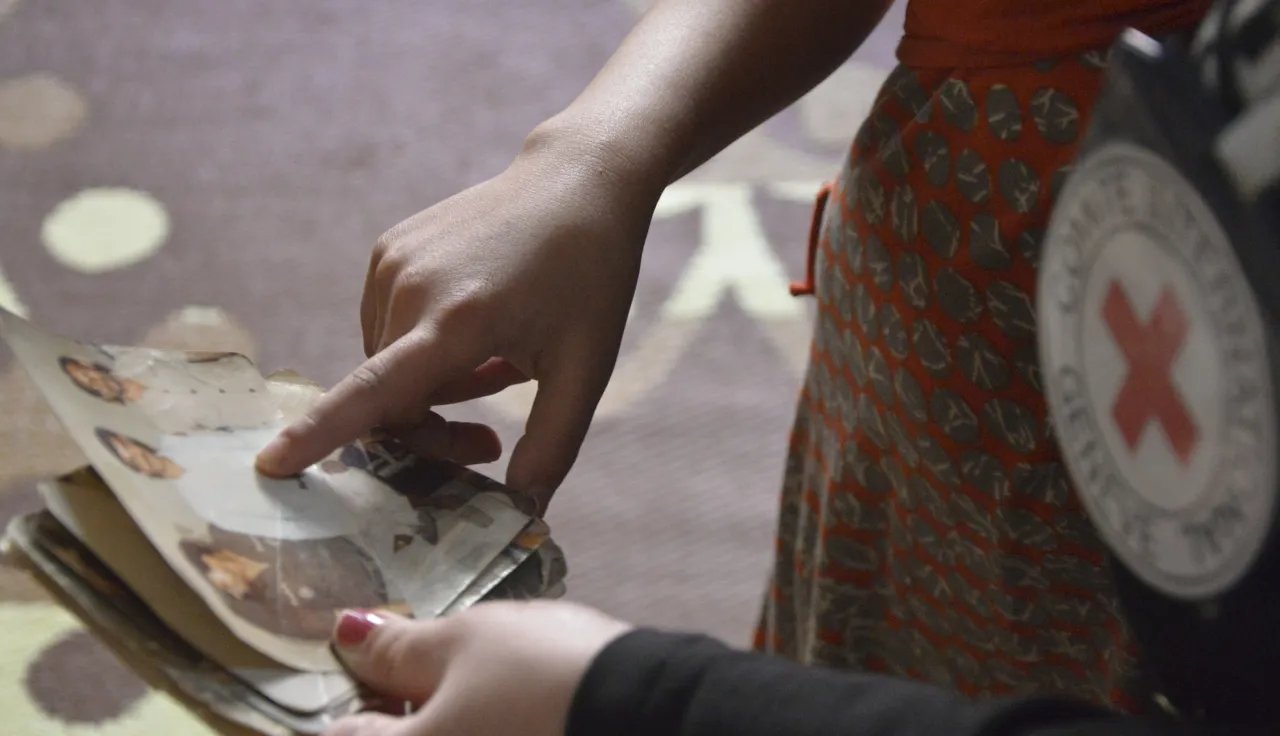Iraq: Humanitarian Call for Witnesses from the Gulf War 1990-1991

Clarifying the fate and whereabouts of Missing People from the 1990-1991 Gulf War
As a result of the 1990-1991 Gulf War, over 1000 Iraqis, Kuwaitis and third nationals are still unaccounted for. Their families have endured years of anguish and uncertainty about the fate of their loved ones.
Not knowing what happened to their loved ones and not being able to give them a dignified burial, or a place to mourn, generates an intolerable burden on these families.
Since the 1990-1991 Gulf War, the ICRC has collaborated with Iraqi and Kuwaiti authorities, as well as international bodies, to locate burial sites and identify missing persons. Although we have made progress in identifying some remains, over 1,000 individuals remain unaccounted for. The ICRC works tirelessly to process new information and continues to seek cooperation from various entities to resolve these cases.
Today, the ICRC seeks your help to bring answers to these families.
ICRC HUMANITARIAN APPROACH
When we receive and process information relating to missing persons and potential gravesites, we do so within our neutral, independent, impartial, and strictly humanitarian action:
- The information we receive, including personal data of the sources who approach us, is treated confidentially, and used only for the purpose of clarifying the fate of missing persons.
- We do not participate in any process aimed at gathering evidence for criminal prosecution; neither do we disclose any information - including the identity of the sources – in judicial proceedings.
- The ICRC's confidentiality is legally protected by both international and national laws.
PURPOSE
The purpose is purely humanitarian - to give answers to the families who have been waiting for decades to know what happened with their loved ones.
All human remains recovered are treated with due care and respect; identified human remains are handed over by the local authorities to the relevant authorities and then to the respective families for dignified burial.
HELP US IN THIS WORK
Do you have information about some events that could have led to some persons going missing or burial places from the 1990-1991 Gulf War?
Did you witness any such events or have seen any place of burial? Have you heard of such events or gravesites from other people?
Do you know other people who can provide information about persons still unaccounted for and their possible burial sites?
Precise and reliable information on possible gravesite locations is key to progress in this process of looking for those still unaccounted for and providing answers to all those families that are still waiting.
You can help us in ending the suffering of the families of missing persons by providing information you may have about a missing person and/or potential burial locations.
All information we receive, including your personal data, will be managed in a confidential manner, and used exclusively for the purpose of this humanitarian program. It will not be shared or used for legal/court proceedings.
HOW TO CONTACT US?
Please contact us at the following email address:
If you have relevant information, please provide as many details as possible. Key details such as the date and place of events leading to disappearance, descriptions of the missing person, or possible witnesses can greatly help in identifying remains and providing closure to families.
If you wish to provide information and remain anonymous, please mention your name or nickname and your phone number. The ICRC colleagues will contact you.
THE ICRC - WHO WE ARE
Established in 1863, the International Committee of the Red Cross (ICRC) is an impartial, neutral, and independent organization whose exclusively humanitarian mission is to protect the lives and dignity of victims of armed conflict and other situations of violence and to provide them with assistance.
As a neutral humanitarian actor, the ICRC does not take sides or gets involved in actions that might be perceived as taking sides, in armed conflicts or other situations of violence, or in any controversies of a political, racial, religious, or ideological nature.



